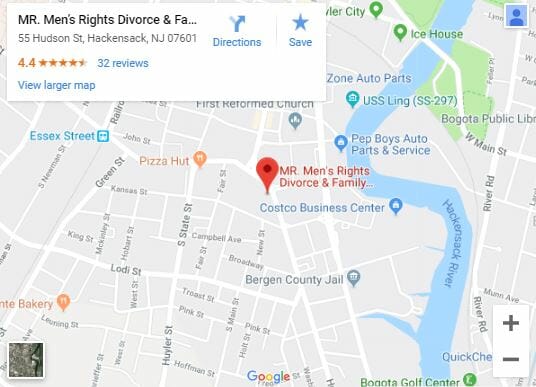
There is no standard cost for a divorce in New Jersey because every situation is different. Uncontested divorces in which spouses are in agreement on everything (and everything being the important word here) are typically less expensive than contested divorces involving disagreements on some or most of the issues. Highly contentious divorces requiring extensive courtroom litigation because the parties cannot agree on anything, are the costliest. Following is a discussion of specific financial costs for a New Jersey divorce — from costs during the actual legal process to post-divorce expenses.
ATTORNEY FEES
It is in the best interest oIt is in the best interest of most divorcing spouses to work with a divorce lawyer in New Jersey. Even in what one would call a “simple” divorce (no children, assets, etc.), it is important to speak to an attorney to make sure that you are complying with the procedural requirements of the divorce and finalizing whatever issues there are in a manner that is objectively fair to you and that aligns with New Jersey divorce laws.
Most divorce attorneys in the State of New Jersey require an upfront retainer to get started and then charge hourly, or the pro rata hour of that attorney and para professionals hourly rate. So, the more time the attorney has to spend on your divorce, or navigating the issues and managing emotions, the more it will cost. When you hire an experienced divorce lawyer, they may charge more than an attorney with less experience, but you get their strong knowledge of the law and procedure, their experience and insight, and their negotiating skills that they have perfected all these years. While you may pay more upfront, in the long-term you may pay less because an experienced family lawyer will have the knowledge needed to help ensure mistakes are not made that come back to bite you later.
In divorce, there are decisions to be made regarding property division, child custody/visitation, dividing businesses, brokerage accounts, and other issues. When opposing parties are both insistent on being the winner (winner of what?), it leads to a lot of time that attorneys spend in court and preparing for court. While there are plenty of times where protracted litigation is necessary in divorce or spouse’s are entrenched in an emotional standoff to right a wrong, obtain validation, seek vindication, preserve legal rights, or protect the safety and well-being of children (which is a very important reason by the way and well worth the money spent), the longer it goes on the more expensive it becomes for both sides.
MEDIATION COSTS
A lot of clients ask us whether they can save on legal fees by attending mediation. Mediators are neutral third parties who help divorcing spouses look for ways to come to an agreement on issues — they cannot and should not give legal advice. Mediation is wonderful and one way to resolve the issues in a divorce. However, it is not meant to be a way to circumvent or shortcut the divorce process. It is meant to be a supplement and one that you still have to pay for. Plus, not every mediator is going to be the right fit for your case and you want to know personalities, their experience with particular issues, etc before choosing one.
Mediators typically also charge hourly or per-session fees. Mediators can be attorneys, non-attorneys, or retired judges. We advocate on using only attorney or retired judges as mediators for a lot of reasons. In order to have it be a fair negotiation, you have to know what your likelihood of success would be in Court if you didn’t settle, plus, you have to know the law just as equally well to understand all the nuances and the impact of all settlement terms being discussed. Just like lawyers, the fee for a mediator is usually dependent upon their level of experience. Both spouses usually contribute in some fashion to the cost of the mediator and the mediation sessions.
Divorcing spouses may opt for mediation voluntarily to help them resolve issues, or it may be ordered by a judge before a case goes to trial. In fact, every divorce case in New Jersey always has an opportunity to attend mediation and if the spouses do not decide to attend early in the process, the Court process will send them there eventually as well. We believe that mediation is a wonderful tool but it’s best to speak with an attorney first to identify the issues that may be in dispute first because then a plan can be put in place on what issues you want (or need) the mediator to assist with.
In either case, the divorcing parties are responsible for the costs.
COURT-MANDATED FILING FEES & OTHER COSTS
Here is a breakdown of court-mandated fees and other costs.
Court Filing Fee
The New Jersey court requires a fee when you file your divorce complaint. The filing fee is $300. If you are seeking child custody or parenting time, there is an additional $25 fee for a parenting workshop. To file an Answer or Counterclaim to a Complaint for Divorce, the filing fee is $175.
Service of Process Fee
If you file for your divorce, you have to serve your spouse with the paperwork. There is a fee associated with this, whether you use the sheriff’s office or a private company. It can save costs if your spouse acknowledges receipt of the divorce paperwork in writing. Before you can proceed with the divorce, the court requires legitimate proof of service.
Experts
You might have to hire other professionals to offer recommendations during your divorce, such as a forensic accountant (to find hidden money, do a cash flow analysis, or value a business) or a child custody best interest evaluator to help opine on a custody or visitation arrangement. Appraisers are common third parties during a divorce if you need to determine the value of your home, artwork, or other valuable assets.
ADDITIONAL EXPENSES TO PREPARE FOR FOLLOWING A NJ DIVORCE
In addition to attorney costs, court fees, and other expenses, your change in lifestyle following divorce will come with some financial costs. These costs may include:
- Moving: You might choose to leave your shared home during the divorce (speak with an attorney before doing so) or after you sell the home. Either way, you should budget at some point for moving costs.
- Refinancing a mortgage: If part of the divorce settlement is that you stay in the house you own, you will have to refinance the mortgage to get the title in your name only.
- Refinancing an auto loan: If your spouse’s name is on the title of the vehicle you want to keep, then you must deal with the auto loan before you can transfer ownership to just you.
- New auto insurance policy: Eventually, you will need to change your auto insurance policy just to cover you and any children you have driving; you may not receive a multi-car discount anymore.
- New cell phone number/device: Depending on the circumstances, you may need to switch your phone/device from a family plan and put this in your individual name. There will likely be costs associated with this transfer.
- Health insurance: If you are on your spouse’s health insurance plan, eventually you will have to purchase your own insurance through your employer or the marketplace.
There may be other costs in this area due to not being part of a couple anymore.
TALK WITH US ABOUT MANAGING THE COST OF YOUR DIVORCE
Hiring an experienced divorce attorney is an investment in your future. Our team at [MFR] Men’s & Fathers’ Rights Divorce Lawyers has helped many people navigate divorce. Once we learn about your divorce and its potential issues, we can help you understand what it could cost and offer advice on how to manage costs without sacrificing the quality of the legal work you will receive. To learn more, call us at (201) 880-9770.

